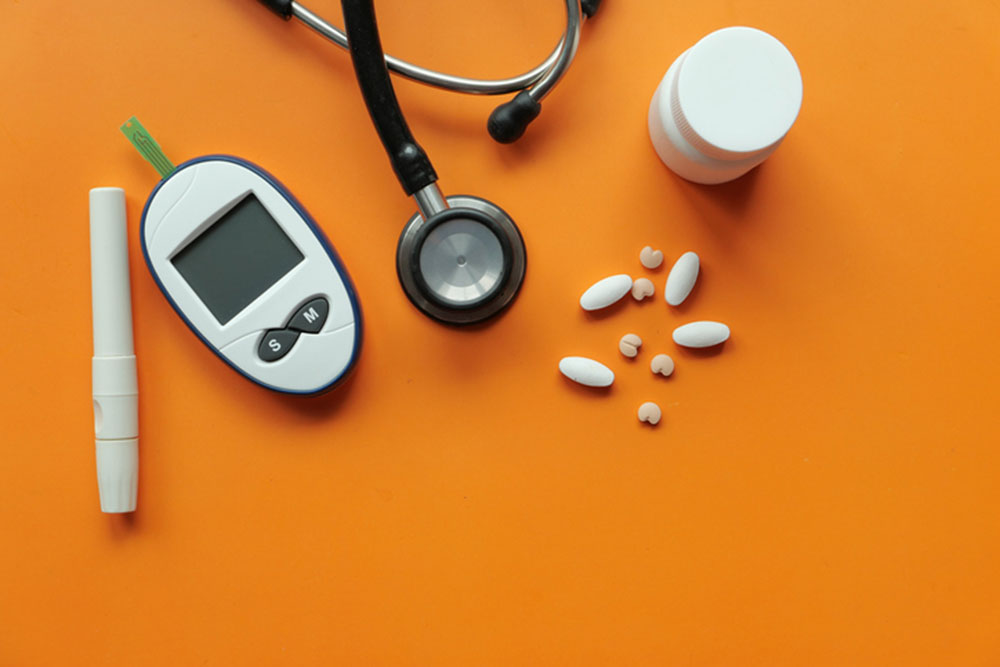
iStock
FOR THOSE with diabetes who contract Covid-19 infections, an impaired immune response leads to higher risk of hospitalization and death (though not of contagion). And poorly controlled diabetic symptoms cause more devastating effects of Covid-19— especially for people living in minority, immigrant and low-income communities with limited access to healthy food and medical care.
In addition, the possibility that Covid-19 infection might itself cause new cases of diabetes sheds light on problems linked to undiagnosed diabetes, which affects more than eight million people in the U.S.—and to “pre-diabetes,” high blood sugar levels that could be an early sign of diabetes. Of one in three adults with pre-diabetes, nine out of ten are unaware of it— but they may suffer more serious consequences of a Covid infection.
(Pre-disease—as in pre-diabetes or osteopenia—is a questionable diagnosis because measurable levels of blood sugar or bone loss are insufficient to confirm the presence of disease. But abnormal levels can motivate people to take beneficial, preventive measures—perhaps especially important in the time of Covid.)
In both Type 1 and Type 2 diabetes, though for different reasons, insulin is no longer doing its job of processing glucose, which then circulates at high levels in the bloodstream. Persistent hyperglycemia can impair the body’s ability to fight off infections–putting diabetics at higher risk for tuberculosis, pneumonia, and infections in the urinary tract, skin and elsewhere.
Circulating high blood sugar impairs “the ability of white blood cells to come to the site of an infection, stay in the infected area, and kill microorganisms,” according to the University of Michigan Health Library. In addition, damage to the blood vessels and buildup of plaque related to high blood sugar may diminish the blood supply and thus the transport of immune cells to infected areas.
In recent research linking dementia to worse outcomes from Covid-19, attention focused on “vascular impairment [in those with dementia], which may be compounded or amplified by Covid-19.”
While high circulating levels of glucose damages blood vessels over time, so too does the low-level inflammation that is continuously harming pancreatic insulin-producing beta cells and increasing insulin resistance. Inflammation, in turn, worsens with the immune response to high blood glucose levels and with increased inflammatory mediators produced in fat tissue.
In addition, the “stress hormone” cortisol raises blood sugar levels to deal with crises like the pandemic; while chronic stress—worry about contagion, anxiety about jobs and health—causes chronically elevated cortisol and the resulting high blood-sugar levels, even with a healthy diet and regular exercise. Lack of sleep can also provoke a response similar to insulin resistance.
The healthy diet crucial for diabetic control is often out of reach for those on limited budgets and living in low-income areas—with few grocery stores and even fewer options for fresh fruit and vegetables. Healthcare insurers such as Humana have begun supplementing food options for diabetics in the second half of each month—when diabetes patients make more ER visits, linked to the period when government food program money runs low.
Controlling blood sugar levels is also more challenging in communities with a high “social vulnerability index” (SVI) score—created by government agencies to determine the level of extra support communities need in the case of hazardous events, including extreme weather and disease outbreaks. The SVI puts more than a dozen variables into four categories: socioeconomic status; household composition/disability; minority status; and housing/transportation—which includes “No vehicle” as a key measure of restricted access to food and healthcare.
As for the possibility that Covid-19 itself can cause new cases of diabetes in patients with no traditional risk factors for the disease, 14% of patients with severe Covid-19 have developed a form of diabetes.
On the other hand, it may be too soon to tell if people with the new diagnoses will have permanent diabetes, according to Columbia University endocrinologist Dominico Accili. Confirmation of a “separate entity of post-Covid-19 diabetes” depends on lasting damage in the pancreatic beta cells that produce insulin—which requires long-term followup, because many other facets of diabetes, such as hyperglycemia, can arise independently along with a Covid-19 infection, writes Accili.
“Stress hyperglycemia” can occur in patients without clear evidence of pre-existing diabetes—as can ketoacidosis (high levels of circulating acid caused by diminished production of insulin), which occurs in unusually high prevalence among patients who have both Covid-19 and diabetes, according to Accili. Rather than Covid-19 causing permanent beta-cell damage, however, it may be that uncontrolled hyperglycemia stuns the b-cells and impairs insulin secretion—but only for the duration of the Covid infection.
And although diet plays a role in the development of Type 2 diabetes, the contribution of other factors, including environment and genetics, remains unclear. Recent Israeli research on stuttering showed twice the risk of developing diabetes before age 40 in boys who stuttered—which is linked to altered levels of stress hormones and dopamine in the brain, suggesting genetic links for both conditions.
For people worried about the diet-diabetes link, new wearable 24-hour glucose monitors can keep track non-invasively of which foods elevate their blood sugar levels, writes the New York Times’s Anahad O’Connor. Responses to different foods can vary widely among individuals—with bread and butter or chocolate causing “substantial blood sugar spikes” in some but not in others. O’Connor himself gave up balsamic vinegar after discovering how much it raised his blood sugar level.
Such monitors are useful, however, only for those willing to alter their diets accordingly. I see no reason to completely forgo sugary tea and ice cream—and especially my favorite white balsamic vinegar—as long as I do not have pre-diabetes, let alone confirmation of disease.
—Mary Carpenter
Well-Being Editor Mary Carpenter keeps us updated on Covid-19 and its effects. To read more of her posts, click here.

Good read. We need a smartphone blood sugar app which alerts you about any abnormal levels of blood glucose. The app also has other added benefits in it.